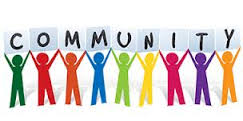It’s true. It DOES take a village to succeed in life. You need family, friends, neighbors and networks to survive in the world – you can’t do it alone.
Yet I cringe when I hear the phrase. That’s my issue.
Anywho – I’m surprised at the tone of The Atlantic:
How do single moms with few resources and little income survive?
“They trade, they bargain, they strategize, they give each other daycare help, they share housing and food—women learn to strategize their way through all of these resources,” Suzanne Morrissey, a professor at Whitman College who has studied these families, told me.
Research suggests that while two-parent families may be isolated islands of efficiency, single parents—even poor ones—rely on an ever-expanding social network to get by. That social network has become even more important in the wake of welfare reform, when women who couldn’t find work could no longer count on cash assistance, and had to depend on their families and friends.
“It was really piecing together help from family and friends, letting bills stay unpaid, and in some of the more dire situations, they doubled up with friends and other family members because housing is such a big cost,” said Kristin Seefeldt, a professor at the University of Michigan who recently released a study about the strategies used by low-income parents in the wake of welfare reform.
I remember being low income. I had a roommate and often times roomMATES. We shared many things; food, rent, cars, utilities and yes – money.
In fact, I vividly remember having conversations with my main man that should either of us find ourselves in the position of having a kid out of wedlock that we would BOTH work to support that child – whatever came our way.
Why is that a bad thing?
Also, and I can’t let this slip, especially after my post on ‘social contract‘, when does single mom become a choice as opposed to an unwanted aspect of life?
Syracuse resident Brandi Davis, a 35-year-old mother of five, has been on public assistance since she was 18 years old. She asks her parents and grandmother to watch her kids when she’s working her minimum-wage job at the grocery store, and sometimes her older children help out, too. The help is necessary, especially since the jobs available to Davis, who has a GED, mostly pay minimum wage.
Beginning at adulthood, young Ms. Davis has never cared for herself yet has brought 5 children into this world.
Five.
Does society’s obligation have limits?


